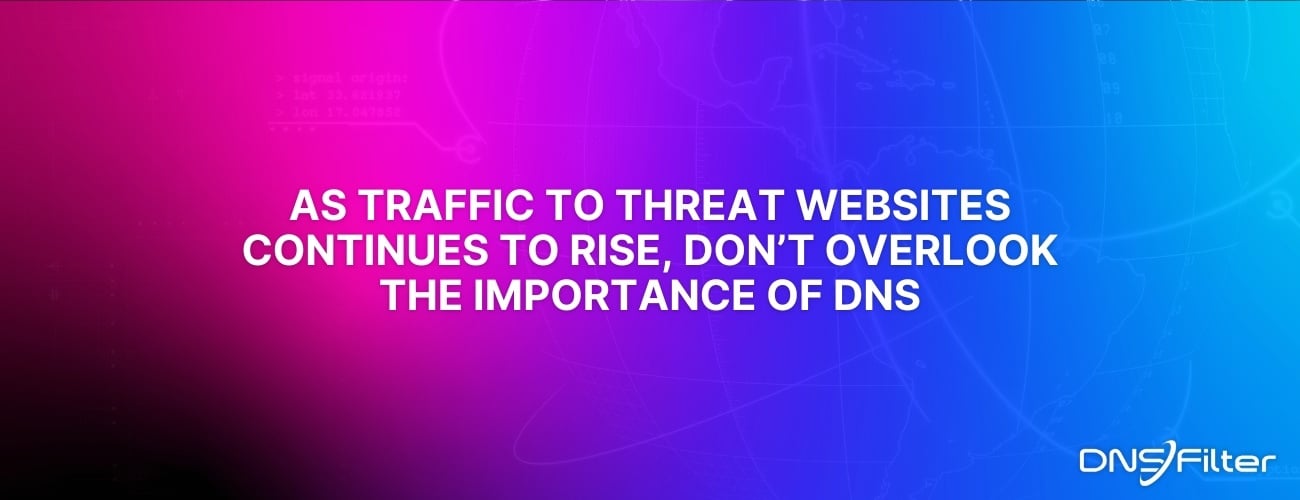by DNSFilter Team on Jun 3, 2024 2:44:48 PM
Domain name systems (DNS) has been undergirding the internet for more than four decades — and still it’s a daily pathway for cyberattacks. Considering how long security pros have had to create a better way to secure it, DNS security continues to lag, posing a significant security risk today. It remains responsible, at least to some extent, for a significant portion of cyber-attacks.
There’s a wide array of attacks based on DNS available to bad actors, including DDoS attacks, malware, phishing and domain theft. Attacks like these have the potential to cause significant disruption to an organization. Though there are many examples to draw from, the Google Cloud and ChatGPT outages are some of the most high-profile current incidents. Almost every aspect of modern malware uses DNS in some way.
Let’s examine ways that criminals are leveraging DNS currently and, crucially, what a security team can improve upon to maintain the upper hand.
 As Traffic to Threat Websites Continues to Rise, Don’t Overlook the Importance of DNS
As Traffic to Threat Websites Continues to Rise, Don’t Overlook the Importance of DNS
At the scale of the Internet, threats are relentless. Domain Name System (DNS) technology is over 40 years old, but it remains just as relevant today—if not more so—to help organizations stay secure from malicious threats. What most people don’t know is that more than 70% of attacks involve the DNS layer. Every malicious request blocked represents a real attack prevented, real harm avoided, and real people protected. This underscores the power of...
 Scammers using AI to create fake IRS sites. Here's other scams to watch out for.
Scammers using AI to create fake IRS sites. Here's other scams to watch out for.
Cybersecurity experts expect a significant surge in tax-related scams in the final month before Tax Day.
 From Weakest Link to Strongest Defense: Building a Human-Centric Cybersecurity Approach
From Weakest Link to Strongest Defense: Building a Human-Centric Cybersecurity Approach
There's a contradiction in cybersecurity: humans can be both the weakest link and the strongest. For instance, humans are highly susceptible to deception. This is an age-old problem; look no further than the Trojan Horse of Greek lore or the Ghost Army of World War II. In the latter case, Allied forces created inflatable tanks and faked radio traffic, among other deceptive tactics across Europe, to confuse, distract and divert enemy forces and sa...